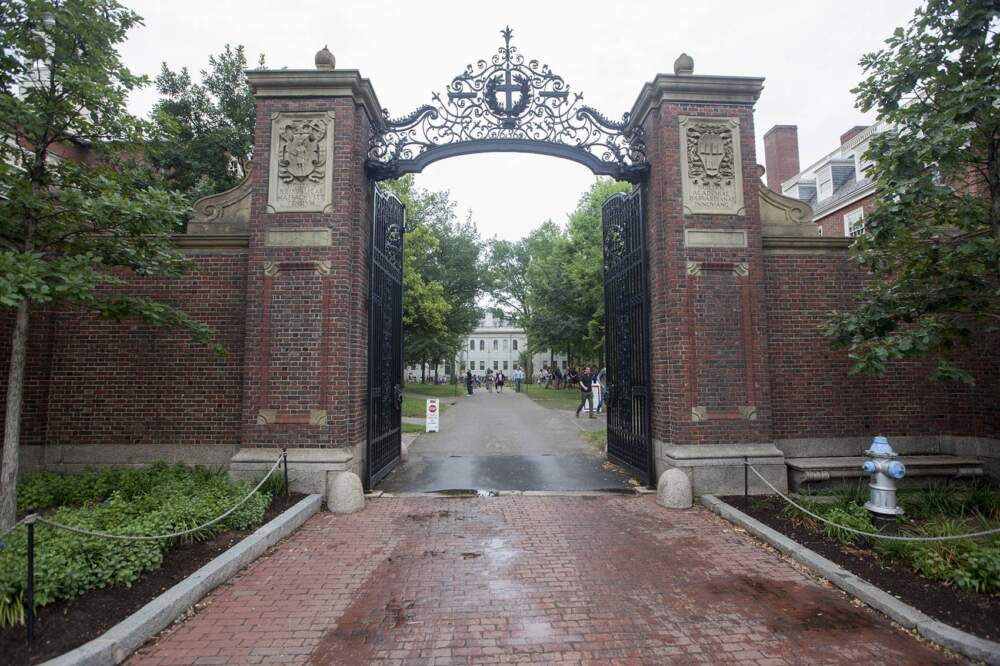Advertisement
Boston's Morning Newsletter
After affirmative action: 3 ways Mass. colleges can still pursue diversity

Editor's Note: This is an excerpt from WBUR's daily morning newsletter, WBUR Today. If you like what you read and want it in your inbox, sign up here.
Leave early today if you’re traveling for the Fourth of July weekend; AAA spokesperson Mary Maguire says this afternoon will be a “very, very busy” time on the roads — with record vacation traffic starting as soon as late morning.
So, we’ll try to make this quick.
In the wake of yesterday’s Supreme Court decision striking down affirmative action, Massachusetts elected officials and college leaders were quick to reaffirm their commitment to promoting diversity in higher education. But how? As WBUR’s Max Larkin reported this week, colleges do have a few other options — some of which they’re already using.
- Targeted recruitment: It’s more resource-intensive, but many local colleges say it’s worth it to travel to and recruit from historically underrepresented communities. For example, Wellesley College admissions staff travel across the country to stage mini-college fairs and themed presentations in both urban and rural areas. In the wake of yesterday’s ruling, UMass Amherst also expressed confidence that their local recruitment efforts would still be able to produce a diverse student body.
- End legacy admissions: Many colleges, like Harvard, give preference to applicants with at least one parent who is an alum — a practice that favors affluent, white students. But some schools, like Amherst College, have recently dropped the policy. In fact, Colorado bans legacy admissions. (Massachusetts House Majority Leader Mike Moran and state Sen. Lydia Edwards recently introduced legislation to do the same in the Bay State.)
- Drop the test: A growing wave of universities, including Harvard, have — at least temporarily — stopped requiring SAT or ACT scores from applicants, amid criticism the tests favor wealthier families. Research also suggests ditching SAT and ACT requirements can lead to a more diverse student population.
- Yes, but: Public colleges in California — one of the nine states where affirmative action is currently banned — have already shifted to some of those more “race-neutral” ways of pursuing diversity, but haven’t seen the number of Black and Hispanic college students return to their pre-ban levels.
- One key point: Yesterday’s ruling did note that colleges can still consider “an applicant’s discussion of how race affected his or her life, be it through discrimination, inspiration, or otherwise.” Some college officials say that wording gives schools a lot of latitude on individual admissions decisions. “[Applicants] should feel free to describe their life experience in whatever fullness they believe is appropriate,” College of the Holy Cross President Vincent Rougeau told Larkin. “And my guess would be that for many of them, their experiences of being Black in American society, of being a Latino will become a relevant part of their story.”
Advertisement
Next on the docket: We’re not done with SCOTUS rulings yet. The court is slated to announce its decision this morning on President Joe Biden’s plan to cancel $10,000 to $20,000 in student loan debt for many borrowers. And as NPR’s Nina Totenberg reported in February, the conservative court’s two primary swing votes — Chief Justice John Roberts and Justice Brett Kavanaugh — seemed skeptical during oral arguments that the plan was within Biden’s legal authority.
- More than 800,000 — or one in nine — Bay Staters are eligible for relief under Biden’s plan. If you’re one of them and have thoughts on the court’s ruling, don’t hesitate to get in touch. Just reply to this email or email WBUR’s Carry Jung at jungc@bu.edu.
Heads up, Somervillians: The MBTA is shutting down the Green Line Extension’s one-stop leg to Union Square for six straight weeks this summer. The diversion will run from July 18 to August 28 for what the T calls “critical repair work by MassDOT on the Squire Bridge.”
- There won’t be any replacement shuttle buses, so officials are advising riders to utilize local MBTA bus routes or walk over to the GLX’s longer Medford branch, which will remain open during the closure.
It seems like the Hynes Convention Center is here to stay. Gov. Maura Healey appointed seven new members Thursday to the Massachusetts Convention Center Authority Board, including several outspoken critics of former Gov. Charlie Baker’s push to redevelop the Hynes.
- The tea leaves: If the plan to sell Hynes wasn’t already dead, it sure seems cooked now, The Boston Globe reports.
We have a deal: Unionized casino workers at Encore Boston Harbor will vote today to ratify a new contract with Wynn Resorts, after the two sides reached a tentative agreement to avoid a strike. It would have otherwise begun at midnight tonight.
- Union leaders seem pretty pleased with the deal, which they say includes “five-star wages, excellent benefits and job security.”
P.S.— Gov. Maura Healey went overseas this week for the first time since her inauguration. Where did she go? Test your knowledge of the stories we covered this week and take our Boston News Quiz.
